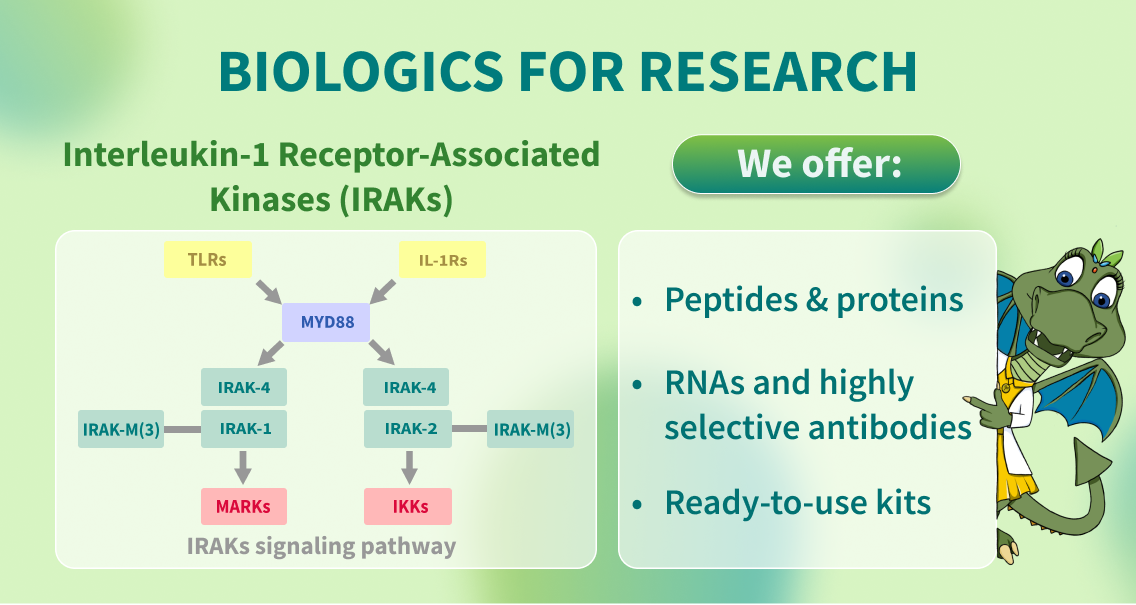We continue our series of posts in the Biologics campaign! Today it is about Interleukin-1 Receptor-Associated Kinases (IRAKs).
Interleukin-1 receptor-associated kinases (IRAKs) play a crucial role in inflammatory responses by regulating the expression levels of various inflammatory genes in immune cells. These pathways are critical in killing viruses, bacteria, and cancer cells. Also, IRAKs signaling is involved in wound healing. To date, the role of the expression of IRAK family members in cancer cells during oncogenesis and cancer progression is not fully understood and requires further research. The IRAK family consists of four members - IRAK-1, IRAK-2, and IRAK-4, expressed in various types of human immune cells, and IRAK-M (or IRAK-3), produced by monocytes and macrophages.
You can retrieve more info about IRAK family members here.
Here is a recent paper describing the discovery of drug candidate GLPG 2534, an oral, potent, and selective inhibitor of IRAK-4, part of the TLR signaling pathway. IRAK-4 integrates downstream receptor signals that play a role in both innate and adaptive immune responses. Immune response modulators have potential applications in immune-mediated inflammatory diseases (IMIDs) treatment. GLPG 2534 has displayed activity in various inflammatory skin disease (ISD) models. Significant TLR and IL-1 responses inhibiting were observed in primary keratinocytes, granulocytes, and T-cells in vitro. Besides, skin inflammation in psoriasis and atopic dermatitis (AD) was reduced by IRAK-4 inhibition in a mouse model. Thus, using GLPG 2534 as an IRAK-4 inhibitor is a promising direction in ISD treatment.
More information about this research is here.
